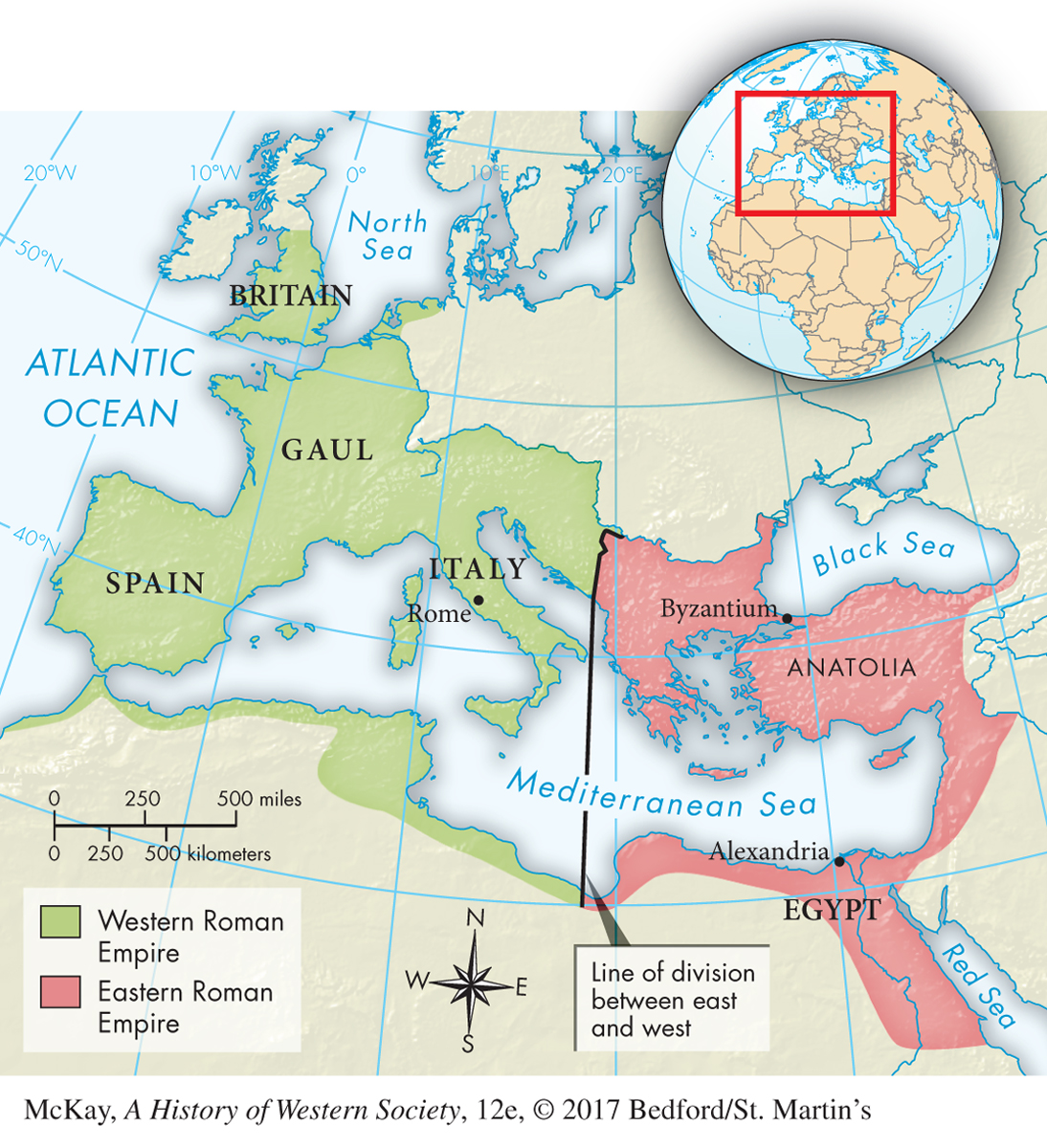A History of Western Society: Printed Page 186
A History of Western Society, Value Edition: Printed Page 174
A History of Western Society, Concise Edition: Printed Page 186
Political Measures
Under Diocletian, Augustus’s polite fiction of the emperor as first among equals gave way to the emperor as absolute autocrat. The princeps became dominus (lord). The emperor claimed that he was “the elect of god” — that he ruled because of divine favor. To underline the emperor’s exalted position, Diocletian and Constantine adopted the gaudy court ceremonies and trappings of the Persian Empire. People entering the emperor’s presence prostrated themselves before him and kissed the hem of his robes.
Diocletian recognized that the empire had become too large for one man to handle and divided it into a western half and an eastern half (Map 7.1). Diocletian assumed direct control of the eastern part; he gave the rule of the western part to a colleague, along with the title augustus. Around 293 Diocletian further delegated power by appointing two men to assist the augustus and him; each of the four men was given the title caesar, and the system was known as the tetrarchy (TEH-

Diocletian’s political reforms were a momentous step. The reorganization made the empire easier to administer and placed each of the four central military commands much closer to borders or other trouble spots, so that troops could be sent more quickly when needed. Diocletian hoped that the tetrarchy would supply a clearly defined order of succession and end struggles for power over the emperorship. That did not happen, but much of Diocletian’s reorganization remained.
Like Diocletian, Constantine came up through the army, and took control after a series of civil wars. He eventually had authority over the entire empire, but ruled from the East, where he established a new capital for the empire at Byzantium, an old Greek city on the Bosporus, naming it “New Rome,” though it was soon called Constantinople. Constantine sponsored a massive building program of palaces, warehouses, public buildings, and even a hippodrome for horse racing, modeling these on Roman buildings. He built defensive works along the borders of the empire, trying hard to keep it together, and used various means to strengthen the army, as did his successors. The emperors ruling from Constantinople could not provide enough military assistance to repel invaders in the western half of the Roman Empire, however, and Roman authority there slowly disintegrated.